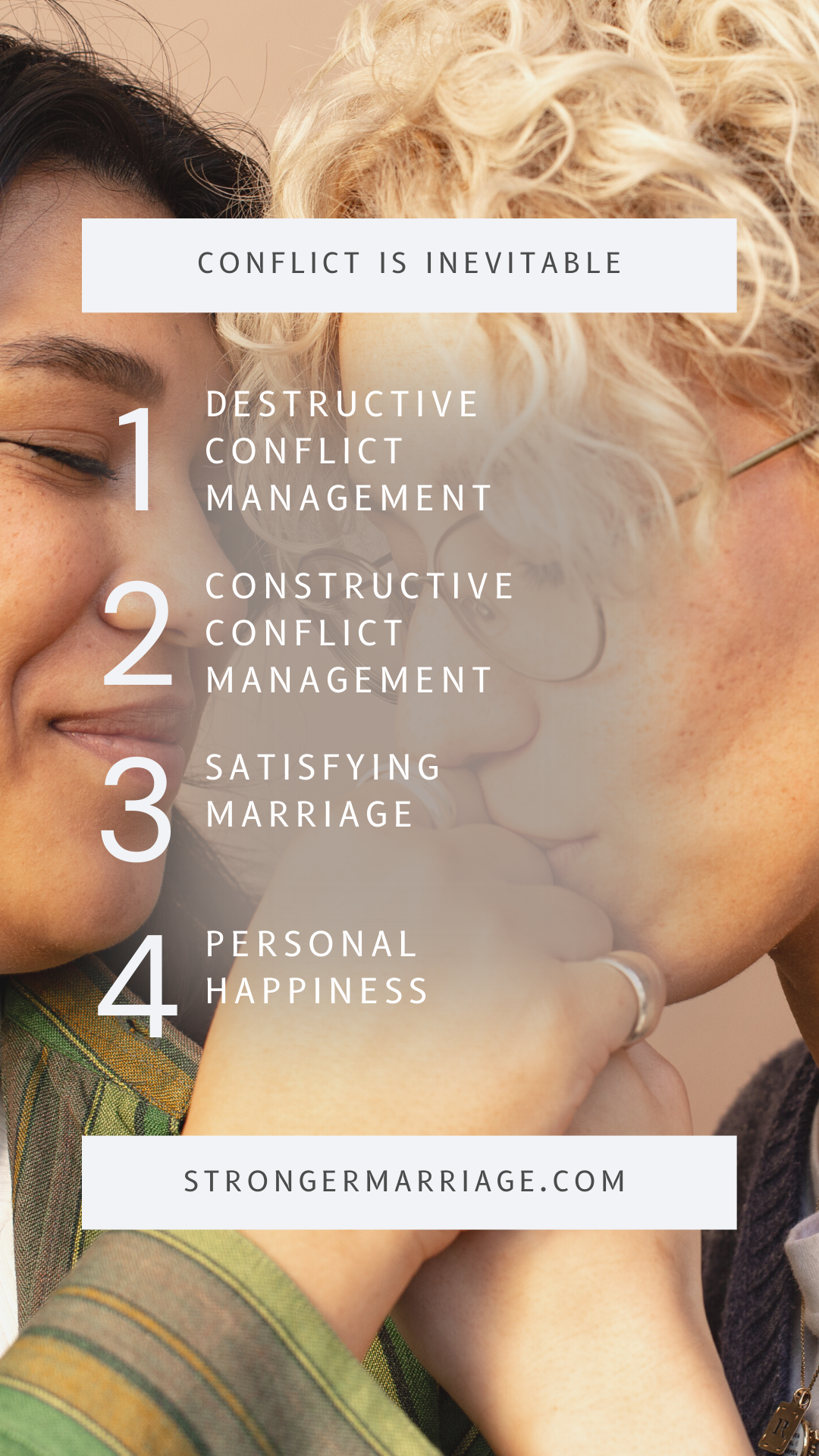
How do I strengthen my relationship?
Slamming doors, yelling matches, irrepressible anger, long night drives. Sound familiar? Many people, at some point in their life have experienced this form of hostile conflict, which the research community refers to as destructive because of its negative implications on relationship quality. Conflict, however, is inevitable. There is no escaping disagreements, especially in close relationships. Even those picture-perfect couples we sometimes admire have disagreements. The biggest misconception, however, is that conflict is always a bad thing, which simply is not true. It’s not conflict itself that has negative implications on relational outcomes, but rather how conflict is handled. When conflict is managed in positive, healthy ways, it can strengthen the relationship and bring people closer together. Such conflict is known as constructive. Researchers agree that negative outcomes of conflict may not only be prevented, but positive outcomes can result.
Destructive Conflict Management Behaviors
Reasons relationships fail, either through breaking up or divorce, often comes from couples engaging in destructive conflict management strategies. Destructive conflict patterns can take on many forms:
- Physical violence
- Emotional/mental abuse
- Withdrawal/neglect
- Yelling
- Not respecting spouse’s opinion
- Repeatedly discussing the same issues
- Intense hostility that may cross the line into abuse
- Giving in or no longer caring; withdrawal
Any of the above-mentioned behaviors go hand-in-hand with the Four Horsemen of the Apocalypse that researcher Dr. John Gottman has identified: criticism, contempt, defensiveness, and stonewalling. These behaviors are usually followed in that order, and these behaviors separate couples who are in satisfying versus unsatisfying marriages. Dr. John Gottman also referred to these couples as “Masters” versus “Disasters” respectively. In fact, engaging in the Four Horsemen of the Apocalypse nearly guarantees that “Disasters” couples, who usually engage in the Four Horsemen of the Apocalypse, will dissolve their union. Unless, of course, a couple can learn to treat each other better and manage their disagreements in healthier ways.
It is important to note that readers may find it surprising that withdrawing from conflict is considered a destructive strategy. Some may even say, “well, I don’t want to be mean, so what’s the harm in withdrawing?” Research on withdrawing strategies is new, but some evidence suggests that couples who fail to engage in conflict may be on the way out of the relationship. They may have little hope about their relationship being repaired or they may think that there is no point in engaging in yet another argument that leads nowhere. Neither of these intentions is a healthy approach to conflict management because it’s even more unproductive to shove the issue “under the rug.” Withdrawing from conflict can also be viewed as simply putting interpersonal differences on hold, which is an ineffective strategy to finding a solution to the problem. And, it’s only a matter of time until the problem resurfaces again. Considering all these scenarios, withdrawing is akin to what Dr. Gottman called as stonewalling, which is when partners or spouses may simply be giving up on their relationship, while secretly hoping for something to occur that would give them a green light to leave the relationship.
Constructive Conflict Management Behaviors
One of the many contributing factors of successful relationships is the use of constructive conflict management strategies. Constructive conflict patterns can also take on many forms, including:
- Respecting the other person despite disagreement
- Treating the situation with humor (but not to the point of insensitive sarcasm)
- Showing affection
- Being willing to compromise
- Progressing towards a resolution
These are just some examples of constructive conflict resolution strategies that any individual can start practicing today. In other words, constructive conflict is a skill that can be learned, which begins with personal awareness and sincere desire to change to improve marriage or any other relationship. Engaging in constructive conflict allows people to move in the direction of finding a solution that benefits the relationship, as opposed to winning an argument. Constructive conflict is an opportunity for partners and spouses to get closer to each other. However, it is important that both individuals in the relationship engage in constructive conflict management behaviors because one person cannot save the relationship. In fact, contrary to a famous adage, a successful relationship is not 50/50, it is 100/100. To make relationships work, each person should give their 100% effort.
If you are interested in learning more about constructive conflict, there are many intervention programs that may be free of charge to the public (see Healthy Relationships Utah). Some intervention programs focus on conflict management, while others emphasize other relational factors, such as communication. Either way, by participating in such programs, participants are likely to increase their awareness of behaviors. Additionally, if you are looking for a good read on this concept, check out Dr. John Gottman’s endorsed book You Can Turn Conflict Into Closeness: 7 Communication Skills of Successful Marriages by Emil Harker. You can also listen to Emil’s tips discussed in the book on Utah Marriage Commission (select episode #022).
Tackle the Conflict
Whether you are a couple just dating, engaged, newlywed, or married with children, conflict will occur. If you want your relationship to succeed, you need to be aware of the outcomes of your actions. Only in responding constructively and working on resolution strategies will you be able to support your spouse and family through all the whirlwinds of life. Engaging in constructive conflict resolution strategies will help you build stronger families, stronger relationships, and a stronger marriage connection

